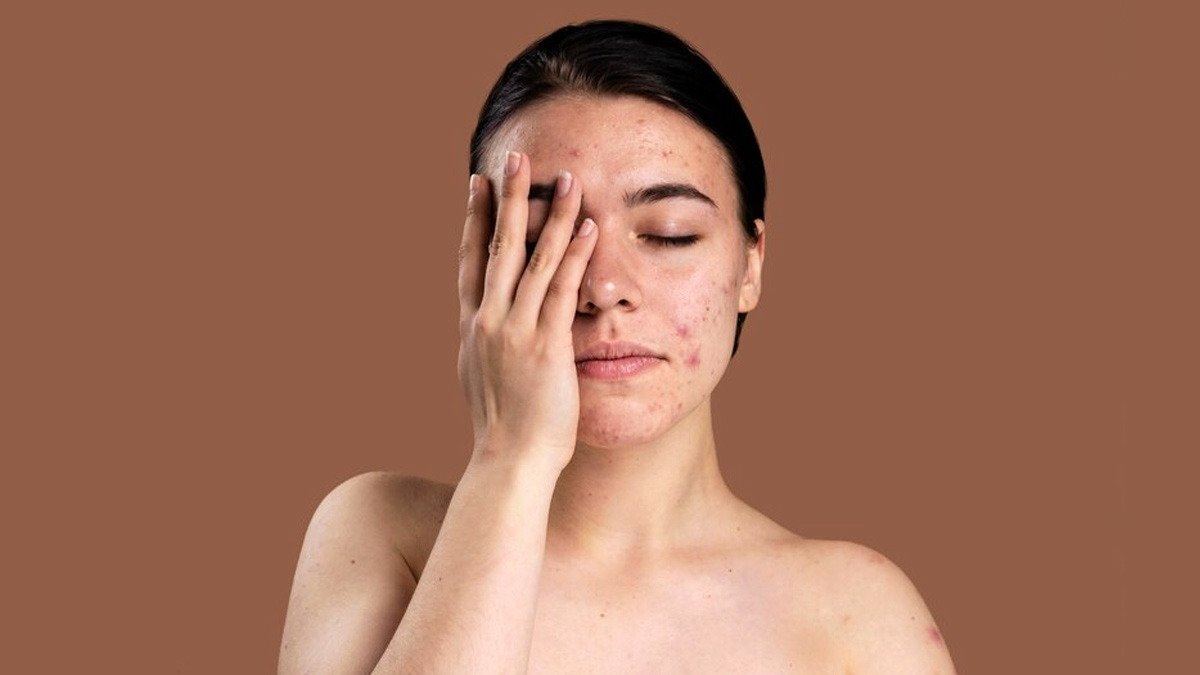
When it comes to acne, most people focus on skincare routines, diet, and hormones. However, one often-overlooked culprit could be lurking in your bedroom: your bedsheet and pillow. The fabrics and materials that you rest on every night can contribute significantly to skin issues, including acne. But don't worry, with a few simple changes, you can prevent this unwelcome guest from appearing.
Table of Content:-
How Your Bedding Can Cause Acne

Dirty Bed Sheets and Pillowcases
Your bed sheets and pillowcases accumulate sweat, oils, bacteria, and dead skin cells over time. When your skin comes into contact with these contaminants, they can clog pores and cause breakouts. This is especially problematic for those who sleep on their stomach or side, as your face is in direct contact with the fabric for hours.
Also read: A Dermatologist Explains Whether Sweating Prevents Or Causes Acne
Fabric Material
The type of fabric used in your bedding also plays a role. Rough fabrics can irritate the skin, while synthetic materials may trap heat and moisture, creating a breeding ground for bacteria. These conditions can lead to what is often referred to as "mechanical acne," where friction or pressure on the skin causes breakouts.
Detergents and Fabric Softeners
The products you use to clean your bedding might also be a problem. Detergents with harsh chemicals and heavy fragrances can leave residues on your sheets, which can irritate sensitive skin and contribute to acne.
Ways to Prevent Acne Due to Bedding

Wash Your Sheets Regularly: One of the simplest ways to prevent acne caused by bedding is to wash your sheets and pillowcases regularly. Aim to change and wash them at least once a week, using a mild, fragrance-free detergent. This helps to remove the buildup of oils, bacteria, and dead skin cells, keeping your sleeping environment clean and skin-friendly.
Choose the Right Fabric: Opt for natural, breathable fabrics like cotton or bamboo for your bedding. These materials allow air to circulate and moisture to evaporate, reducing the chances of bacterial growth. Additionally, consider using a silk or satin pillowcase, which can be gentler on your skin and reduce friction.
Use Hypoallergenic Detergents: If you have sensitive skin, consider switching to hypoallergenic detergents that are free of dyes and fragrances. These are less likely to irritate your skin or leave behind residues that can clog pores. You can also add an extra rinse cycle to your laundry routine to ensure all detergent is thoroughly washed out.
Also read: Self-Care Tips To Manage Pregnancy Acne
Avoid Fabric Softeners: Fabric softeners often contain chemicals that can irritate the skin. If you want softer sheets, consider using a natural alternative, like white vinegar, during the rinse cycle. Vinegar helps to soften fabric without leaving any residue that could trigger breakouts.
Keep Your Bed Clean: Apart from changing your sheets, it's important to keep the rest of your bed clean. Vacuum your mattress regularly to remove dust and dead skin cells. If you have pets, try to keep them off the bed as their fur can carry bacteria and oils that may contribute to acne.
Shower Before Bed: If possible, shower before bed to remove sweat, dirt, and oils from your skin. This reduces the transfer of these substances to your bedding, keeping your sheets cleaner for longer.
Conclusion
Acne can be frustrating, but by making a few adjustments to your bedding habits, you can significantly reduce the chances of breakouts caused by your sheets and pillowcases. Regular washing, choosing the right materials, and using skin-friendly products are simple yet effective ways to keep your skin clear and healthy. After all, a good night's sleep should leave you feeling refreshed, not dealing with a fresh crop of pimples!
Also watch this video
How we keep this article up to date:
We work with experts and keep a close eye on the latest in health and wellness. Whenever there is a new research or helpful information, we update our articles with accurate and useful advice.
Current Version